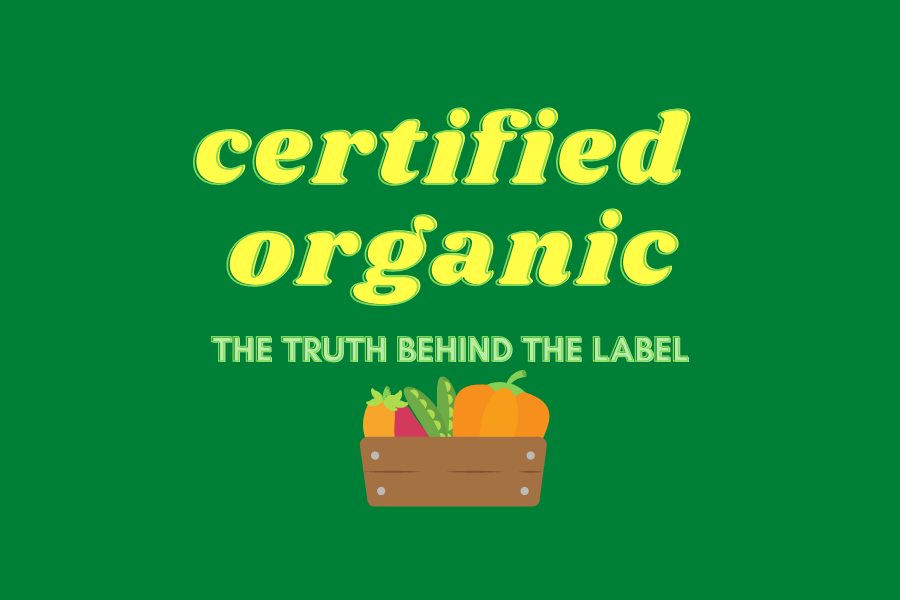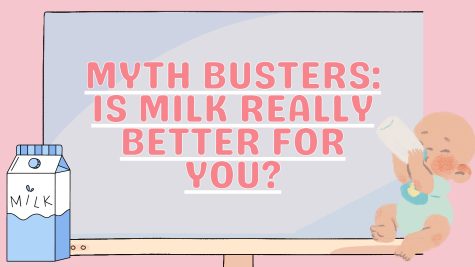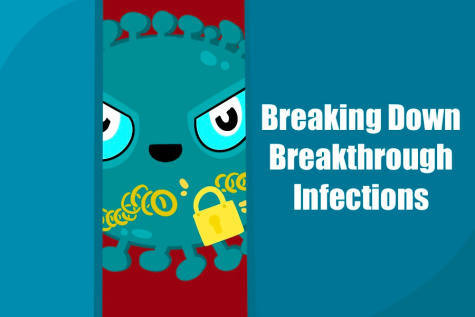Certified Organic: The Truth Behind the Label
Picture this: you are baking a cake for a friend’s birthday when you realize that you are missing eggs, a key ingredient in the recipe. You run to the grocery store in search of eggs, only to realize that there are dozens of options to choose from. Some claim to be “organic” while others are “conventionally” grown. Glancing at the price tag, you find out that organically grown eggs cost almost twice as much as conventionally grown eggs. What is the difference between the two, and which type of egg should you buy?
The difference between conventional and organic foods
It is important that consumers understand what factors differentiate conventional and organic foods. On one hand, conventional farming uses chemical fertilizers and pesticides to promote plant growth, manage weed growth, and get rid of pests. In addition, this farming technique feeds animals antibiotics and hormones to stimulate growth and prevent diseases. On the contrary, organic farmers avoid using chemicals on their crops and antibiotics on their livestock. Instead, organic farmers compost to fertilize soil, use traps to get rid of pests, rotate crops to manage weeds, and make sure the animals have a balanced diet and clean housing. The goals of organic farming is to enhance soil and water quality, reduce pollution, provide safe and healthy livestock habits, and promote a self-sustaining cycle of resources on a farm.
What does an organic label really mean?
The U.S. Department of Agriculture (USDA) certifies organic products according to strict guidelines. Organic farmers must apply for a certification, pass a test, and pay a fee in order for them to be able to label their products as organic in stores. In stores, a product with a “USDA Organic” label on it means that at least 95% of the food’s ingredients were organically produced. It is important to note, however, that not all organic foods become certified, even though all certified food is organic.
Why do people buy organic foods?
On average, organic eggs cost $4 to $7 per dozen while non-organic eggs range from $0.97 to $3 per dozen. Despite the high cost of organic foods, there has been an increase in the purchasing of organically grown products. There are a variety of reasons why many choose to buy organic foods. For example, the environmental benefit that results from organic farming, which is designed to reduce pollution and conserve water and soil, encourages people to purchase organic products. Organic farming practices do not release synthetic pesticides that harm wildlife, and they seek to preserve biodiversity. Furthermore, animals are treated in a more respectful and humane way in organic farming conditions. Another huge reason people choose to eat organic is for health reasons, as many are concerned that exposure to pesticides and other chemicals used in conventional farming could harm the development of children and lead to cancer.
Is organic really better?
Despite all of the benefits organically grown foods supposedly have, researchers have discovered very little difference in nutritional content, aside from slightly higher phosphorus levels in many organic foods, and a higher omega-3 fatty acid content in organic milk and chicken. While organic farming does lower pesticide residues by 30%, pesticide levels in both organic and non-organic foods were within allowable safety limits. Additionally, while organic chicken and pork were about a third less likely to contain antibiotic-resistant bacteria than conventionally raised chicken and pork, the bacteria that cause food poisoning were equally present in both types of foods. All in all, the decision to buy organic goods is based on one’s needs, wants, and budget. If you are concerned about pesticides and you can afford organics, it might be worth it to buy them. However, if you are buying organic solely for better nutrition, it is important to recognize that there is no evidence there are any real advantages.
Sources:
Alvarez, Luis M. “It’s Easy Being Green: Organic vs. Conventional Foods—The Gloves Come Off.” Center for American Progress, 10 Sept. 2008, www.americanprogress.org/issues/green/news/2008/09/10/4933/
its-easy-being-green-organic-vs-conventional-foods-the-gloves-come-off/. Accessed 23 May 2021.
Horgan, Katie. “How Much Do You Pay for a Dozen Organic Eggs?” Giving Assistance, 25 Sept. 2020, blog.givingassistant.org/how-much-do-you-pay-for-a-dozen-organic-eggs/#:~:text=It’s
%20no%20secret%20that%20organic,%240.97
%20to%20%243%20per%20dozen. Accessed 23 May 2021.
Mayo Clinic Staff. Organic foods: Are they safer? More nutritious? Mayo Clinic, 8 Apr. 2020, www.mayoclinic.org/healthy-lifestyle/nutrition-and-healthy-eating/in-depth/organic-food/art-20043880. Accessed 23 May 2021.
Watson, Stephanie. Organic food no more nutritious than conventionally grown food. Harvard Health Publishing, Harvard Medical School, 5 Sept. 2012, www.health.harvard.edu/blog/organic-food-no-
more-nutritious-than-conventionally-grown-food-201209055264. Accessed 23 May 2021.












